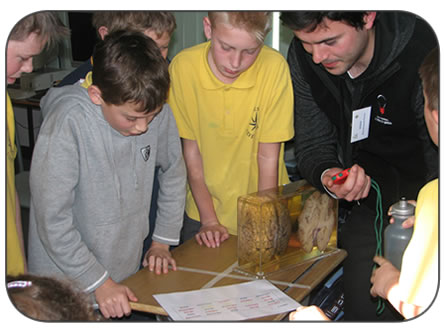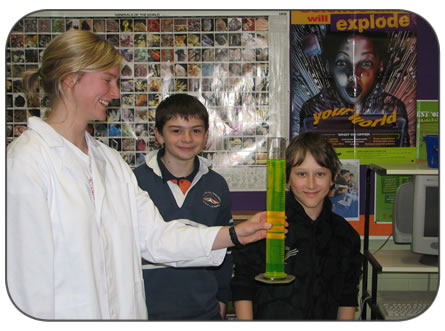
Teachers Ideas for Classroom Activities
Use the YTS profiles (online or download the pdf versions) to explore some of the following topics:
Brainstorm
- What does it mean to be a scientist?
- Where do scientists work?
- What personal qualities do you need to be a scientist?
- What skills do scientists need?
Choose a Young Tassie Scientist
- What are they studying?
- Why does their work interest them or why do they consider it important?
- What are the connections between their work and real life problems?
- How is their work relevant to daily life and /or your life in the future? Try showing this through a collage of images.
Science in the News
- Collect science related articles from the newspaper for a week. Group them into categories
- can you find any common themes? Does the work of any of the Young Tassie Scientists match these themes?
- Write a newspaper article about one of the Young Tassie Scientist’s research. Why would people want to read your article?
- If you were going to interview a Young Tassie Scientist on radio or television, who would you interview and what questions would you ask them?
- If you were a scientist, would you want to work in any of the same areas as the Young Tassie Scientists? Which ones and why? What other areas could you work in? What famous discovery would you want to make, and why?
Science in Australia
- Can you name any famous Australian scientists?
- Is science important to Australia
- why or why not? You could hold a class debate.
- Should we have more awards, like the Logies, to recognise the achievements of Australian scientists?
- If you had to award a prize to the best Young Tassie Scientist, what criteria would you use? Should you consider the benefits of the research, how much it cost, whether it could be used for other purposes? Should you consider the appearance of the scientist?
What would the prize be? Which Young Tassie Scientist would you choose? Who would your class choose?
Curriculum Connections
The Young Tassie Scientist program supports the four strands of the Tasmanian Science Curriculum, as follows:
- Science as a human endeavour – showing how scientists think and work on different contexts, and implications of their research for society and the environment
- Scientific inquiry – illustrating ways in which scientists investigate and explain the world
- Science communication – demonstrating how scientific information can be communicated in a variety of ways
- Science as a body of knowledge – providing opportunities for students to engage with established scientific knowledge and cutting-edge research





